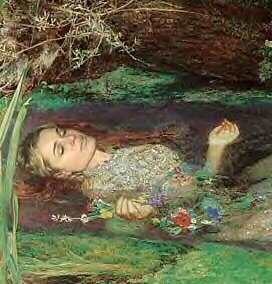WEDNESDAYS, JANUARY 8 THROUGH MARCH 12

The University of Chicago's Doc Films will host a Brian De Palma retrospective on Wednesdays, beginning January 8 with Scarface, and concluding on March 12 with Femme Fatale. Most of the films will be screened from 35mm prints, but Phantom Of The Paradise and Body Double will each be screened in DCP. The series includes an intriguing choice at its halfway point: on February 12th, it will screen Michelangelo Antonioni's L'Avventura.
Dan Wang, who programmed the retrospective, writes in its introduction, "When Brian De Palma was to give a Q&A at Lincoln Center in Manhattan this summer (on the occasion of the wider release of his latest film, Passion), I asked the guy at the ticket office if he expected a long line. He doubted it. 'De Palma isn't really relevant anymore,' he said. I ended up sitting on the floor at the back of the hall behind a concrete pillar, despite showing up an hour and a half early; half the line was turned away.
"One can see what he means. De Palma's favorite themes--dangerously erotic women, voyeurism, psychological horror--seem like the titillations of faded era. Compounding these obsessions is his insistence on an extremely smooth, controlled and virtuosic style that's hopelessly far from current anti-formalist vogues. Recent hits like Aronofsky's Black Swan (2010 ) and Soderbergh's Side Effects (2014 ) tell De Palmian stories but dress them up in camera and video production styles currently in fashion (i.e. on YouTube ) ;hence the rejection of De Palma's importance is also the rejection of a particular, classical way of making films.
"De Palma is still relevant because his films remind us of the exhuberant joy of intelligent filmmaking--of an attitude to film worlds that Godard called, in reference to Hitchcock, the 'control of the universe.' Even his worst films have moments that leave one gasping at their beauty; his best ones feel like a confirmation of everything movies ought to be. In this partial retrospective (De Palma has an output that sprawls in genre and ambition of some thirty films ), we feature a mix of De Palmas: movies of psychological horror (Sisters, Raising Cain), gangster films (Scarface, The Untouchables, Carlito's Way), a musical (Phantom of the Paradise) and, of course, classic, pervy, Hitchcockian, joyous De Palma (Hi, Mom!, Body Double, Femme Fatale)."
And here is the retrospective's description of the L'Avventura screening: "Before Blow-Up moved De Palma, L'Avventura won a prize at Cannes. People saw something new: framing a shot like composing a painting; objects as well as characters telling a story and provoking a mood; spontaneous, even random, dialogue. One can be impatient. One can also let go of expectations of quick excitement and tidy plot resolution, absorb the imagery and the sadness of the characters, turn inward, and reflect on a different movie experience."



